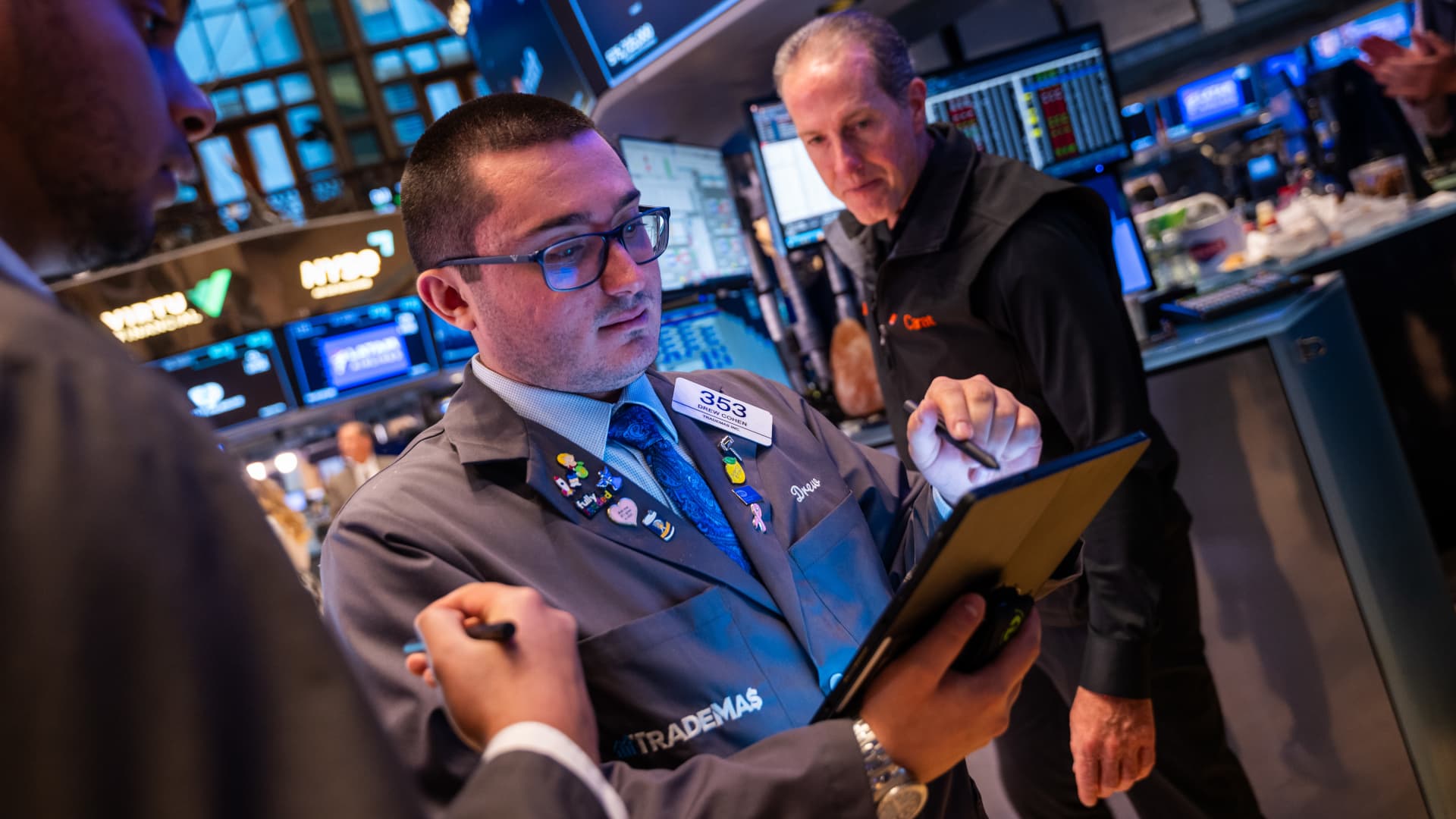Election Day is just one week away, and the outcome is set to have wide-ranging consequences for markets regardless of the who wins or which party controls which chamber of Congress. Stocks are uncharacteristically strong heading into the U.S. presidential election on Nov. 5th, with all three major averages at or near all-time highs even in the face of rising Treasury yields. On Tuesday, the Nasdaq Composite index notched a new record for the second time in three days. But whichever way the results fall on Nov. 5th has the potential to roil markets — especially given what’s been an exceptionally tight race between former President Donald Trump and Vice President Kamala Harris, according to the latest NBC News poll . “No matter how the election results come in, it’s certain that there will be lasting effects for both U.S. and global markets,” Mike Mullaney, director of global markets research at Boston Partners, wrote in a recent paper. The candidates’ policies could hardly be more different. Trump has promised expansive tax cuts for companies and individuals, in addition to stepped up tariffs and a mass deportation of illegal immigrants. Harris has promised higher taxes on corporations and the rich, an to expand housing and health care spending. Both, however, would implement policies that raise what is already a yawning budget deficit. It’s a concern perhaps picked up by bond investors, who briefly drove the yield on the benchmark U.S. 10-year Treasury near 4.34% on Tuesday. Here is how stocks might react to a variety of outcomes. A Trump win, with or without a Republican sweep A Trump victory, with an uncontested Republican sweep of Congress, is projected to be a bullish development for equities. It’s a outcome that markets appear to already be pricing in . Not only are the three major stock averages at or near all-time highs, the outperformance of banks in particular points to further cyclical leadership in the event that Trump wins the November election. The SPDR S & P Regional Banking ETF (KRE) has jumped nearly 5% since the fourth quarter began on October 1, while the S & P 500 is ahead a little more than 1%. Julian Emanuel, senior managing director leading the equity, derivatives, and quantitative strategy team at Evercore ISI, expects the vote could lead to a “‘performance chase’ meltup” that pushes the S & P 500 over 6,000 after the election, and close to 6,300 by yearend. Other market observers also expect a Republican sweep will be bullish for equities. “If you do get Trump in a Red Sweep, you’re going to get this cyclical pile on,” Warren Pies, 3Fourteen Research co-founder, told CNBC’s ” Closing Bell ” on Friday. The market “could have indigestion” at first blush, “and then all of a sudden everyone realizes, yeah, but nominal GDP is going to be really strong. So, let’s buy this market,” he said. In the event of a Trump win but with a divided Congress, the S & P 500 is likely to remain flat in the days following the election, Emanuel wrote. However, this case has the highest likelihood of a “market meltup” scenario, in which the S & P 500 could soar above 6,450 during what are already the seasonally strong months of November and December. A Harris win, with and without a Democratic sweep A Harris victory, including a sweep of both the House of Representatives and Senate, is expected to act as a negative surprise for markets in the days after the Nov. 5th election. Evercore ISI expects the S & P 500 falling in the 10 days after the election, to roughly 5,700, as markets re-price their expectations. But even under this scenario, the broad market index is still seen surging to close to 6,200 by the end of the year. I think you could get an after-election opportunity to put money to work,” Jeff Schulze, head of economic and market strategy at ClearBridge Investments, said during a media webcast last week. 3Fourteen Research co-founder Pies expects a Harris win would translate into a drop in cyclical and small cap stocks, and spur investors to turn to high quality tech names. He expects bond yields could come off their highs. However, a Harris win, with a split Congress, is an outcome that could spur a drop in the S & P 500 immediately after the election, down to about 5,525, according to Evercore ISI. In this outcome, the S & P 500 could end the year little changed from where it is now if the election results are only lightly contested, or slide to maybe 5,675 if the results are highly contested and there’s a threatened disruption to the transfer of power in January, Evercore ISI’s Emanuel said.

